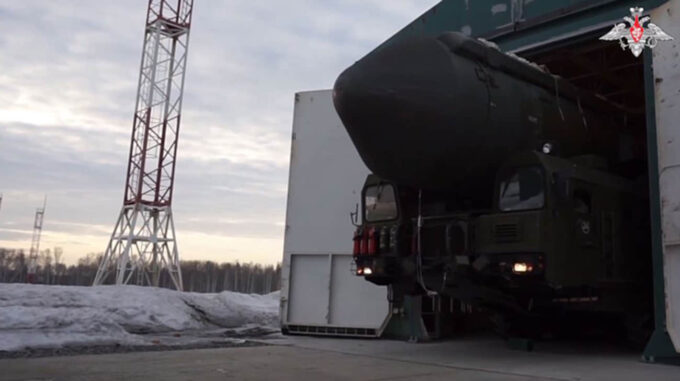No signs of an intercontinental missile launch aimed at intimidating Ukraine and NATO have been detected in Russia – Media

In recent hours, Russian information sources have published an official statement denying reports of a planned or executed launch of the RS-24 "Yars" intercontinental ballistic missile on the night of Sunday. Major Ukrainian and international analytical resources, including Defense Express, have published detailed information indicating that the Russian Federation has not conducted any launches of this deadly missile amid increased tensions around Ukraine and the European region as a whole. According to Defense Express, there was apparently no attempt to launch the missile that night. It is known that reports were circulating suggesting that, in the event of a real launch, its consequences would be recorded and documented deep within Russian territory. Modern Russian strategic airbases—one of the largest and most secretive in the world—is the "Kura" test site in Kamchatka, which is the main target zone for intercontinental missile strikes. Russian military and intelligence agencies are well aware of how often missiles fly over this region, as this test site is where the most extensive launch operations are carried out. Therefore, if a launch truly occurred, it would inevitably be shown in video footage obtained from specialized equipment or recorded by ground or air observation systems. However, no such evidence has appeared in open sources. Experts believe it is unclear why Russia failed with this key element of demonstrating its nuclear capabilities. It is worth recalling that in 2023, Russia failed to conduct routine RS-24 "Yars" missile launches twice in a row, causing concern in the international community and raising questions about Russia’s ability to maintain the global balance of power. Defense Express also emphasizes the high likelihood that the failure could be linked to technical malfunctions or incidents during the initial phase of flight. For example, at the end of September 2024, an explosion occurred in the launch silo at the Plesetsk Cosmodrome, where the RS-28 Sarmat missile complex burst apart. This indicates that even modern and deeply upgraded systems have their vulnerabilities. Regarding the RS-24 "Yars": it is a strategic missile system based on a solid-fuel intercontinental missile, adopted by Russia in 2009. It plays a significant role in nuclear deterrence through a distributed system of warheads, which can number from three to six depending on the modification. Each warhead has the capability to hit its target with maximum precision, and the missile’s flight speed reaches approximately 14 Mach. Propaganda sources claim that the power of one "Yars" missile is equivalent to the explosion of one million tons of TNT, and no missile defense system in the world can fully neutralize it. According to Russian military experts, the "Yars" warhead can destroy a small city or military facility. Preliminary data suggests that Ukraine’s Main Intelligence Directorate had warned of a possible demonstrative "training-combat" launch of this missile on the night of Monday, May 19. It was also reported that Russian forces were preparing for potential large-scale demonstrations of their nuclear capabilities, including closing the airspace over missile test sites for two days. Notably, the closing of the Kapustin Yar area for two days in May hinted at a possible launch, aimed at sending messages about Russia’s strategic nuclear strength. It is evident that Russia is attempting to maintain an element of intrigue and demonstrate its nuclear might amid geopolitical tensions. However, most observers and experts view this with skepticism due to the absence of any footage, confirmations, or official statements regarding a launch. Given the situation, there is growing concern over the possibility of sudden, unpredictable incidents that could trigger further escalation. Thus, for now, official Moscow denies any launches, and experts believe this episode only underscores the instability and potential technical problems within Russia’s missile programs. Nevertheless, attention to this issue remains high since any unauthorized or unplanned launch could have catastrophic consequences for European and global security.

